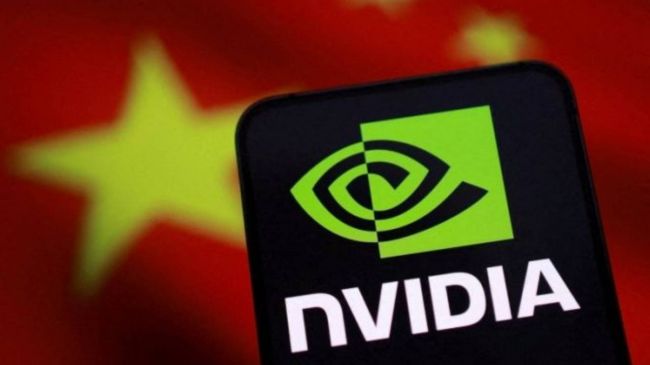In a bold expansion of its AI-powered content ecosystem, Google has officially introduced AI-generated summaries in its Discover feed, the personalized news carousel inside the Google app. While users may now get the gist of a story at a glance, publishers fear it could further decimate already fragile web traffic—turning Discover from a traffic driver into a traffic blocker.
The rollout, now active for U.S. users, adds a short AI-generated synopsis below headlines. It’s part of Google’s growing ambition to make content “instantly accessible,” but as with the controversial AI Overviews in Search, it’s kicking up dust in newsrooms worldwide.
How Google’s AI Summaries Work in Discover
Rather than linking directly to an article with a headline and publisher logo, Discover’s updated cards can now include a Google-generated summary of the article, followed by a small link attribution. There’s also a gray disclaimer noting that these summaries are AI-generated and may contain errors.
Google claims the system does not hallucinate and only summarizes existing content already indexed. But even with accurate summaries, the very act of pre-consuming content within Discover may reduce user motivation to click, browse, or engage with the full article.
Discover Feed: Once a Traffic Lifeline, Now a Threat?
For years, Google Discover served as a passive but powerful traffic funnel, helping publishers reach millions of mobile users. News outlets optimized thumbnails, titles, and even structured data just to earn a spot in the feed.
Now, with AI doing the summarizing and labeling stories generically, publishers fear they’ll lose their visual identity and clickthrough incentive—especially on mobile, where the summary dominates the interface and the publisher’s link is an afterthought.
Zero-Click Is Now a Pattern—And It’s Accelerating
This is no isolated change. Between May 2024 and May 2025, zero-click behavior in Search increased from 56% to nearly 69% for news-related queries, according to Similarweb data. With Discover following suit, Google’s ecosystem is becoming increasingly "read here, not there."
AI Overviews have already been shown to reduce clickthrough rates by up to 40%, according to internal publisher studies. Discover's new summaries could trigger similar declines—particularly for breaking news, niche articles, or high-quality analysis that thrives on reader time and engagement.
What This Means for Small vs. Large Publishers
Big publishers may adapt. They have newsletters, podcasts, apps, and brand recall that drives direct traffic. But smaller and mid-tier outlets, many of which depend on Google Discover for 30–70% of mobile visibility, are bracing for devastating hits.
With AI summaries skimming the value from their headlines and articles, publishers worry they’ll pay the cost of content creation without the reward of audience reach.
AI in Search, AI in Discover — What’s Next?
This marks a turning point where two of Google’s most influential surfaces—Search and Discover—now actively summarize content instead of merely linking to it. And that raises questions: Will YouTube recommendations get AI notes? Will Google Maps offer AI-generated reviews or city summaries?
Every step forward in Google's AI journey appears to inch closer toward user containment, where content from the open web is consumed without ever visiting the web.
In response to rising backlash, Google has launched Offerwall via Ad Manager—a monetization tool allowing publishers to gate content behind quick paywalls, surveys, or subscriptions. Early testing in India saw a 20% revenue boost for Sakal Media Group and a 9% average lift across others.
But these tools don't scale fast, and critics argue that the revenue potential from Offerwall is nowhere near the value lost from reduced traffic. It’s a band-aid for a hemorrhaging problem.
Can Publishers Opt Out of AI Summaries?
No. There is currently no known method for publishers to block their content from being used in Discover AI summaries. Unlike Google Search, where publishers can apply structured data or limit snippets, Discover offers no opt-out mechanism or transparency into when and how summaries appear.
This lack of control is adding fuel to the already smoldering fire between Google and the global publishing community.
The Legal Landscape: Copyright, Consent, and AI Reuse
Several legal battles are unfolding. A coalition of European publishers recently filed an antitrust complaint in the EU, arguing that Google is abusing dominance by summarizing their content without compensation or consent.
Meanwhile, lawsuits in the U.S. (Chegg) and Brazil echo similar concerns—that Google’s AI features are reproducing copyrighted work in a way that damages publishers’ monetization models.
If courts rule against Google, it could reshape not only Discover but the future of generative AI in search, feeds, and beyond.
User Perspective: Time-Saving Summaries or Shallow Skims?
For end users, AI summaries are a double-edged sword. On one hand, they reduce friction, allowing for faster consumption of trending stories or general updates. On the other, they often strip articles of nuance, context, and editorial integrity.
This tension—between convenience and depth—lies at the heart of the debate. Are users better informed, or simply more satisfied with less?
Google’s Defense: Helpful, Transparent, Optional
Google maintains that AI summaries are intended to help users decide what to click, not to replace full articles. The summaries are clearly labeled, feedback-enabled, and offered alongside links—not instead of them.
The company says it’s open to feedback and continues to invest in tools that support the open web. But publishers argue that investment without traffic is like planting seeds without soil.
Final Word: A Redefined Web, One Summary at a Time
Google’s latest move signals more than a feature update—it marks a philosophical shift in how content is distributed, consumed, and valued. Discover’s AI summaries may benefit time-starved users, but they also place a heavy tax on the journalism ecosystem.
Unless traffic-sharing, compensation, or opt-out policies emerge, the risk is clear: a world where content is everywhere, but its creators are nowhere to be found.





